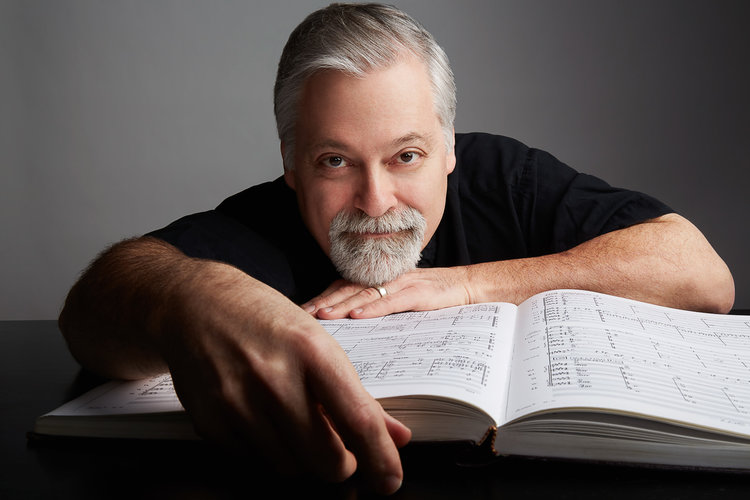
[photo by Karen Pearson]

|
Daron Aric Hagen was born November 4, 1961 in Milwaukee, Wisconsin, and grew up in New Berlin, a suburb west of Milwaukee. He began composing prolifically in 1974, when his older brother Kevin gave him a recording and score of Benjamin Britten's Billy Budd. Two years later, at the age of fifteen, he conducted the premiere of his first orchestral work, a recording and score of which came to the attention of Leonard Bernstein [shown at left in the photo below], who enthusiastically urged Hagen to attend Juilliard to study with David Diamond. He studied piano with Adam Klescewski, and composition, piano, and conducting at the Wisconsin Conservatory of Music (where his teachers included Duane Dishaw and Judy Kramer) while attending Brookfield Central High School. After two years at the University of Wisconsin–Madison, where his
teachers included Catherine
Comet (conducting), Jeanette Ross (piano), and Les Thimmig and
Homer Lambrecht (composition), he was invited to attend the Curtis Institute
of Music in Philadelphia by Ned Rorem (with whom he
developed a lifelong friendship). While a student of Rorem's at Curtis,
he studied piano with Marion Zarzeczna and also studied privately with
Lukas Foss. Hagen
moved to New York City in 1984 to complete his formal education as a
student at Juilliard, studying first for two years with Diamond, then
for a semester each with Joseph Schwantner
and Bernard Rands.
After graduating, Hagen was a Tanglewood composition fellow before briefly
living abroad, first at the Camargo Foundation in Cassis, France, and
then at the Rockefeller Foundation's Villa Serbelloni in Bellagio, Italy,
where he has twice been a guest. Between 1985 and 1998 Hagen was also a
frequent guest at the MacDowell Colony. When he returned to the United
States, Hagen studied privately with Bernstein, whose guidance during the
composition of Hagen's Shining Brow (1992) — the opera that
launched Hagen's career internationally — prompted him to dedicate the
score to Bernstein's memory. 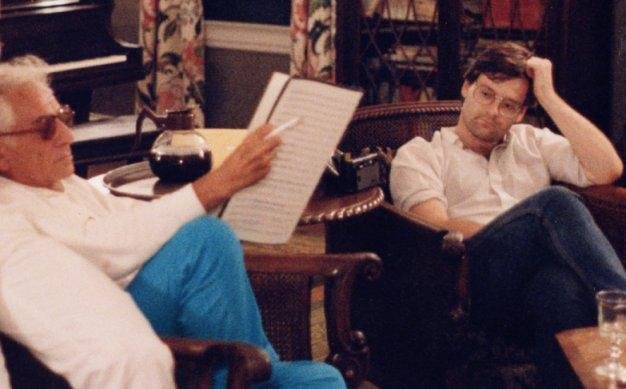
A stint as composer in residence at the Music Conservatory of the Chicago College of Performing Arts led to an invitation to join the artist faculty there in 2017 "in a multi-disciplinary position created for him that enables him to share his skills as a stage director, dramaturge, composer, and social activist with students from throughout the Roosevelt University community as they shadow him and collaborate in the development of a new Hagen opera each year." He has served as the Franz Lehár Composer in Residence at the University of Pittsburgh (2007), twice as composer in residence for the Princeton University Atelier (1998, 2004–5); as artist in residence at the University of Nevada, Las Vegas (2000–2002); Sigma Chi-William P. Huffman Composer in Residence at Miami University, Oxford, Ohio (1999–2000); artist in residence at Baylor University, Waco, Texas (1998–1999); on the musical studies faculty of the Curtis Institute of Music (1996–1998); as an associate professor at Bard College (1988–1997); as a visiting professor at the City College of New York (1997, 1993–1994); and as a lecturer in music at New York University (1988–1990). As artistic director of the Perpetuum Mobile Concerts (1982–87)
he premiered compositions by over a hundred American composers on concerts
produced in Philadelphia and New York. Hagen served as president of
the Lotte Lehmann Foundation (2004–07) in New York City, an international
nonprofit organization dedicated to encouraging the performance and
creation of opera and art song; from 2000 to 2018 he served as a trustee
of the Douglas Moore Fund for American Opera, and was elected a lifetime
member of the Corporation of Yaddo in 2006. He is the founding artistic
director of the New Mercury Collective, "a laboratory for artistic exploration,
creative risk-taking, and performance in which its members can collaborate
on the creation and performance of post-genre works combining theater,
music, and emerging technology for audiences of all types." Hagen has been
a featured composer at the Tanglewood, Mostly Modern, Ravinia, Wintergreen,
and Aspen music festivals, and has served as artistic director and head
of faculty for the Seasons Fall Music Festival in Yakima, Washington (2008–2012).
He has served as co-chair of Composition for the Wintergreen Summer Music
Academy in Virginia since 2015. == Names which are links in this box and below
refer to my interviews elsewhere on my website. BD
|
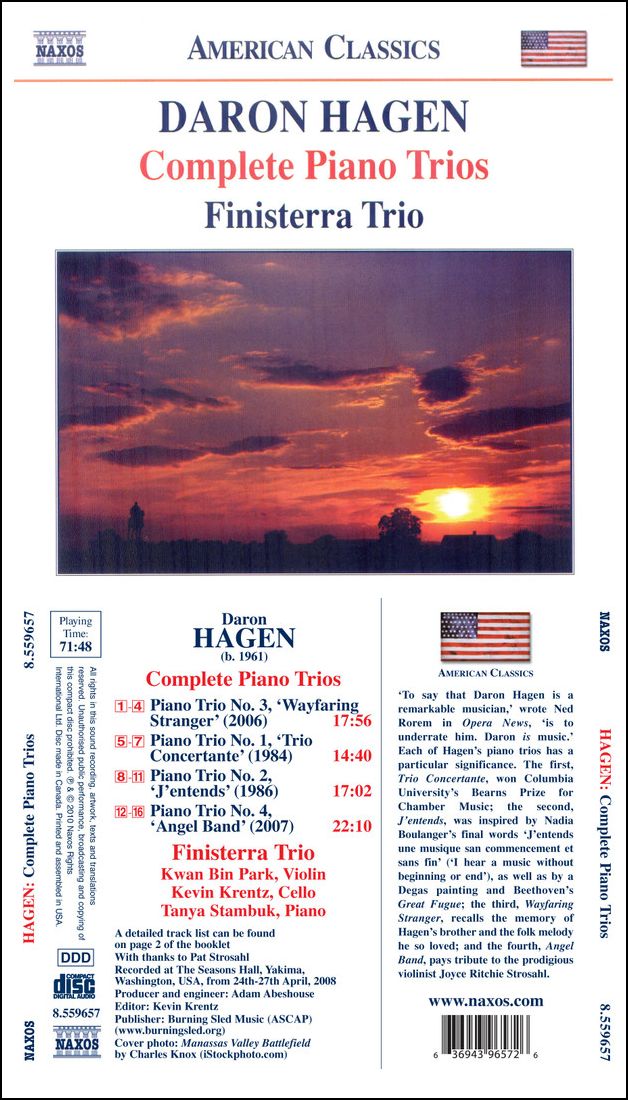
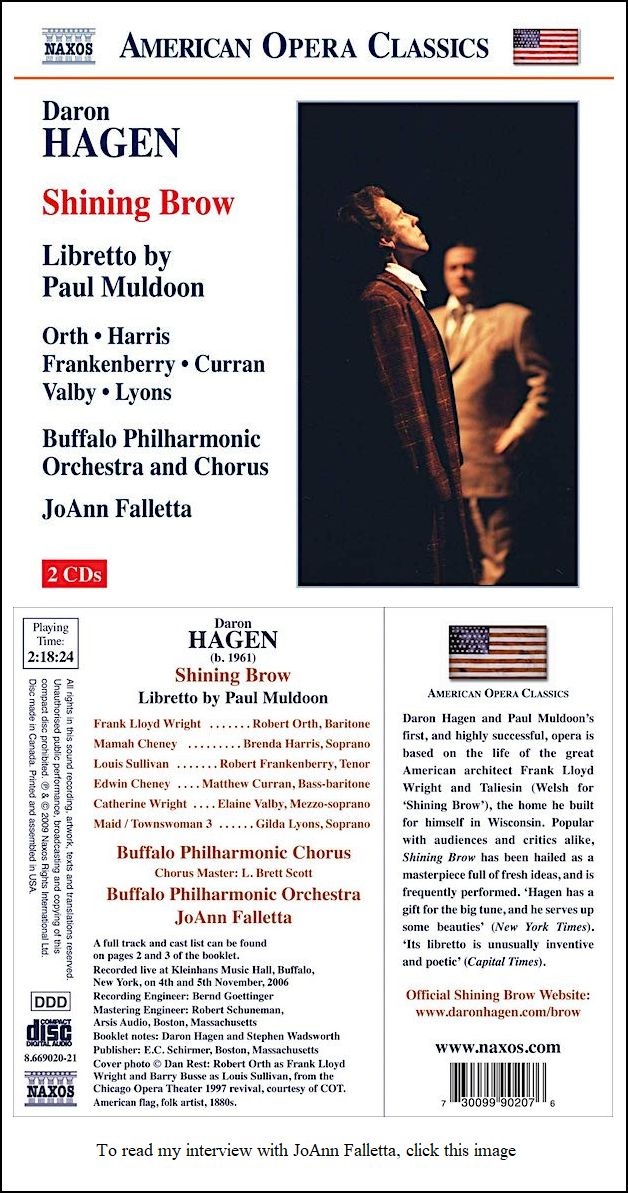
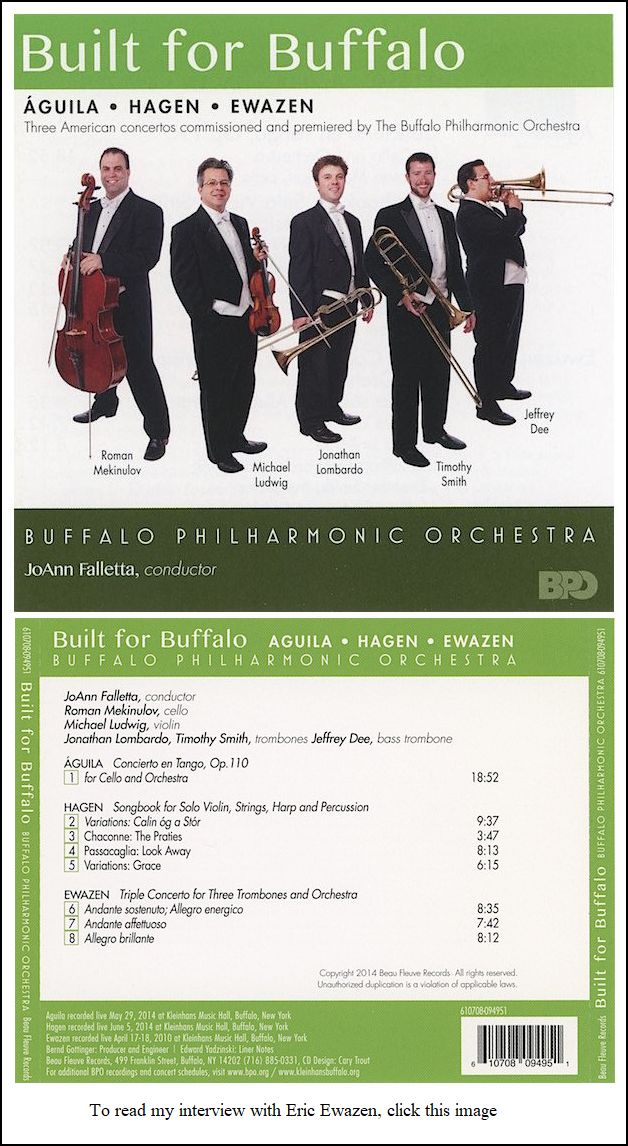
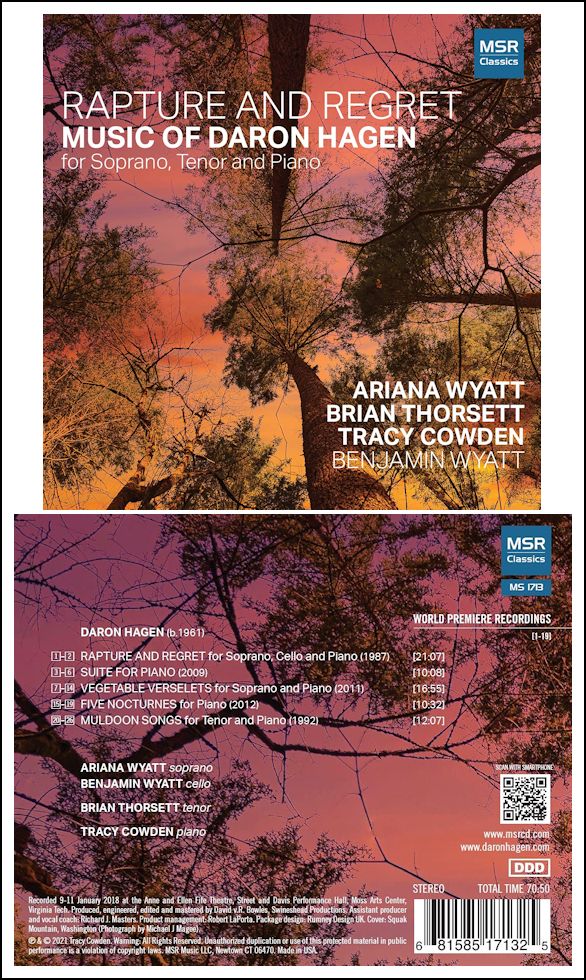
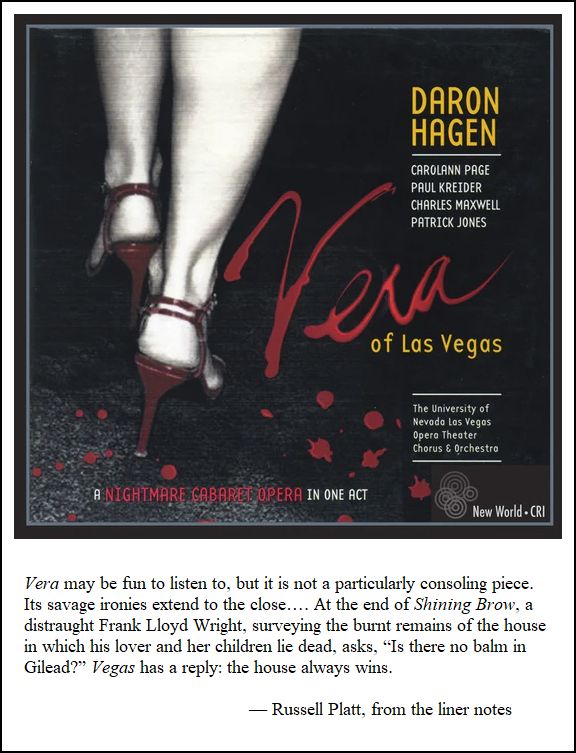
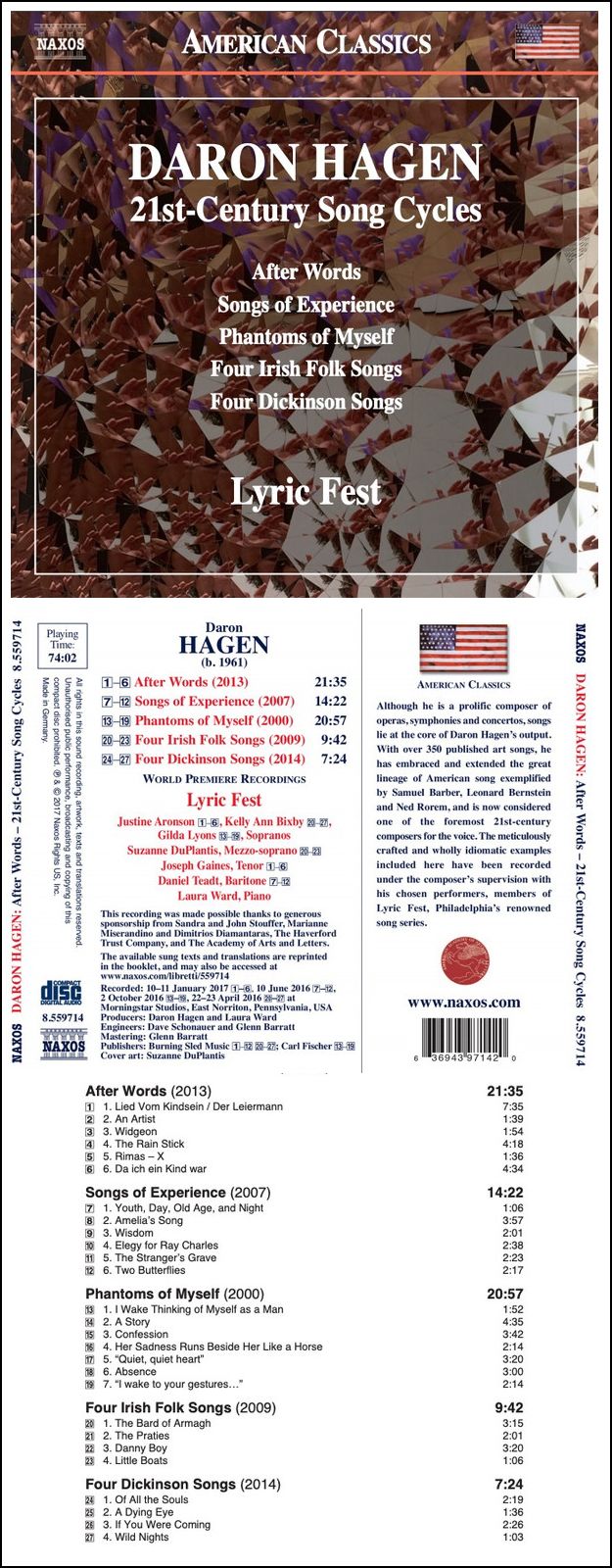
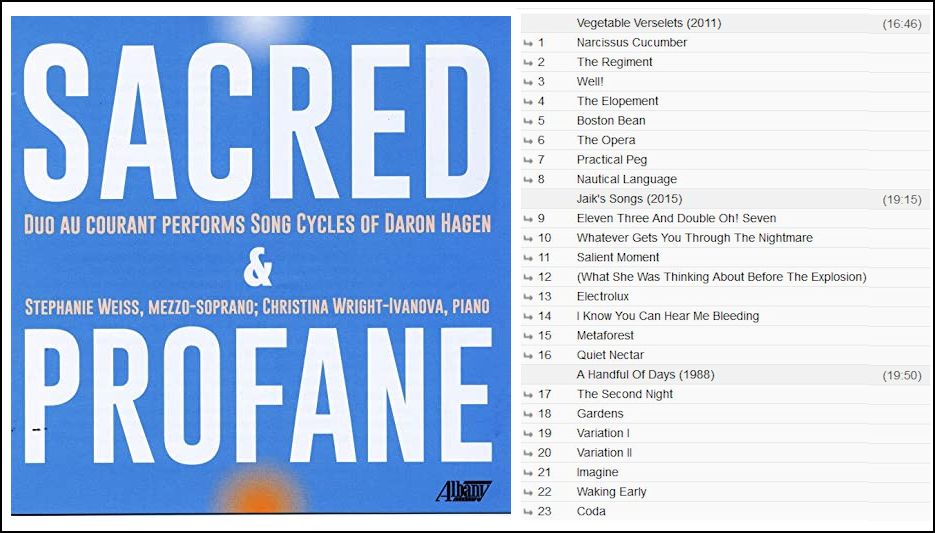
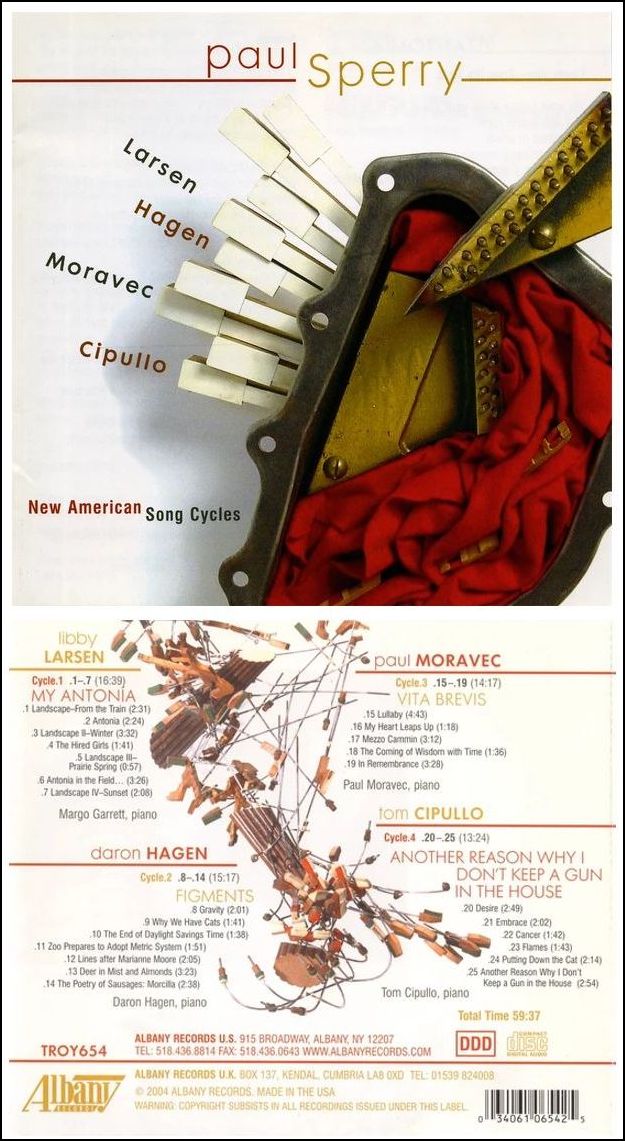
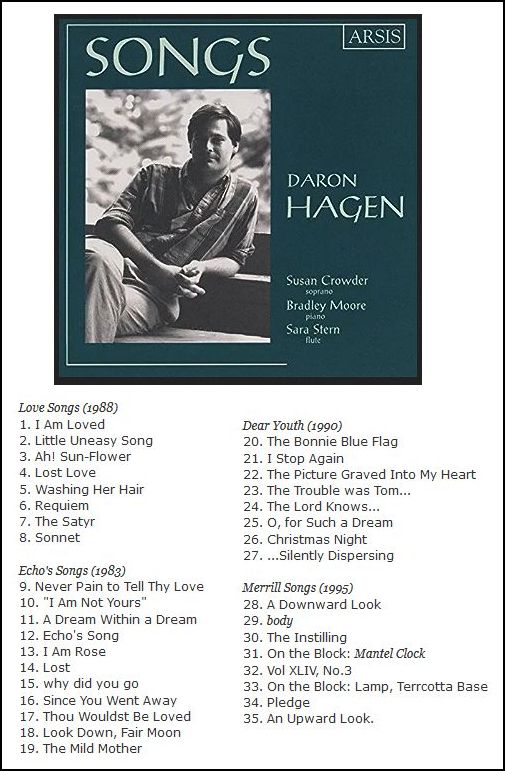
A few candid photos from the composer’s collection |
|
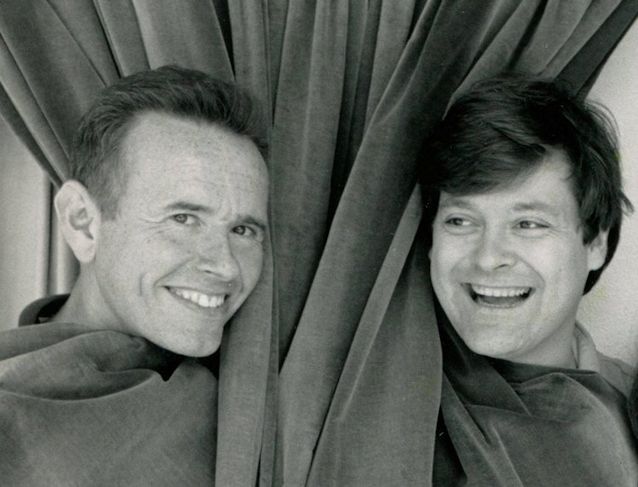
Hagen (right) with composer David Del Tredici |
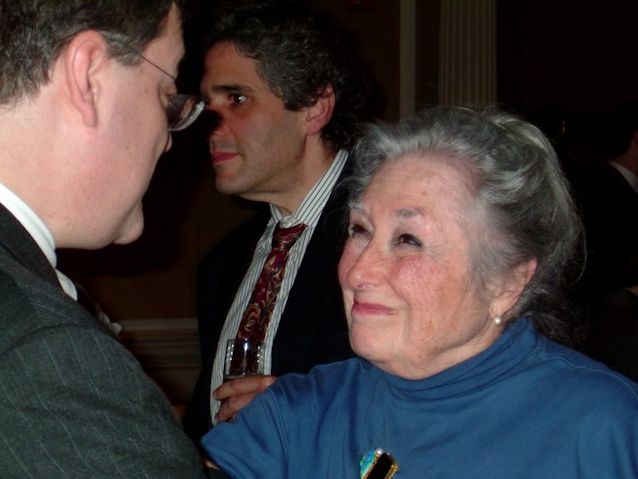
Hagen (left, wearing glasses) with soprano Phyllis Curtin |
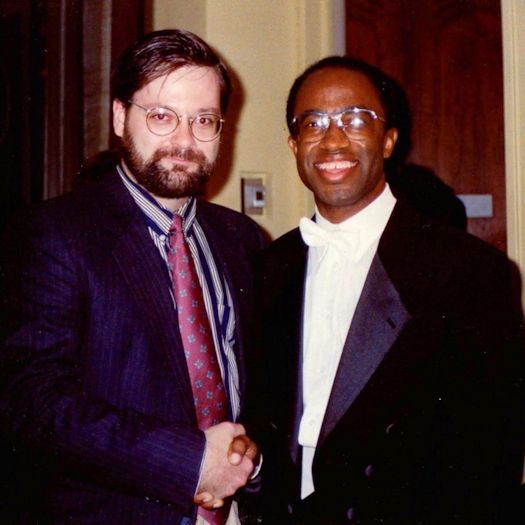
Hagen (left) with conductor Michael Morgan |
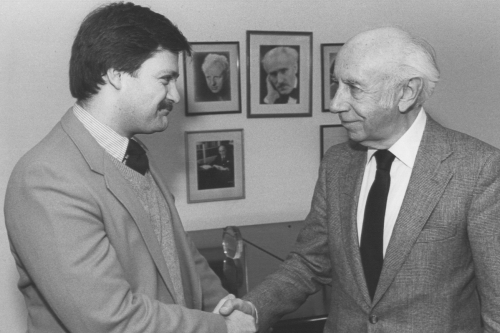
Hagen (left) with composer/conductor Morton Gould [The two upper-row photos on the wall are conductors Leopold Stokowski, and Arturo Toscanini] |
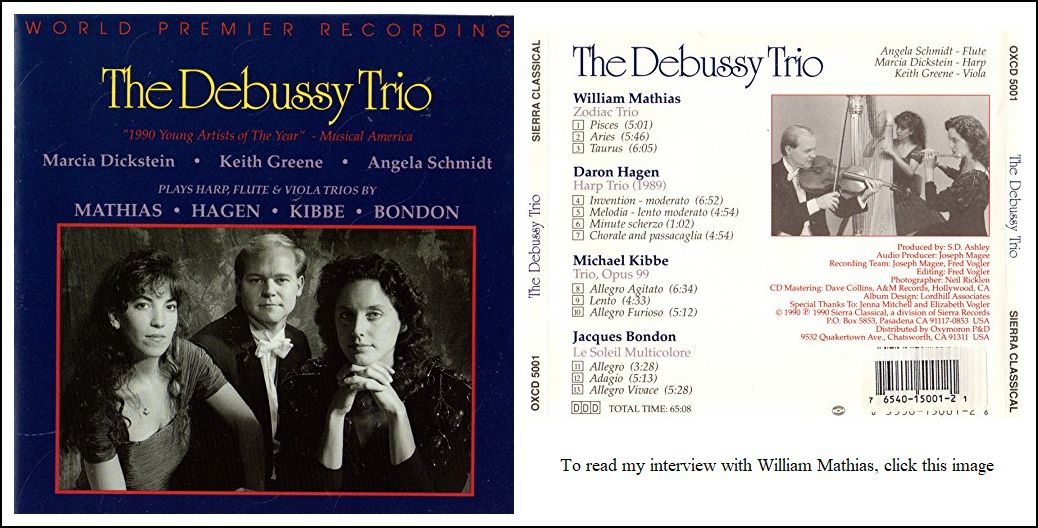
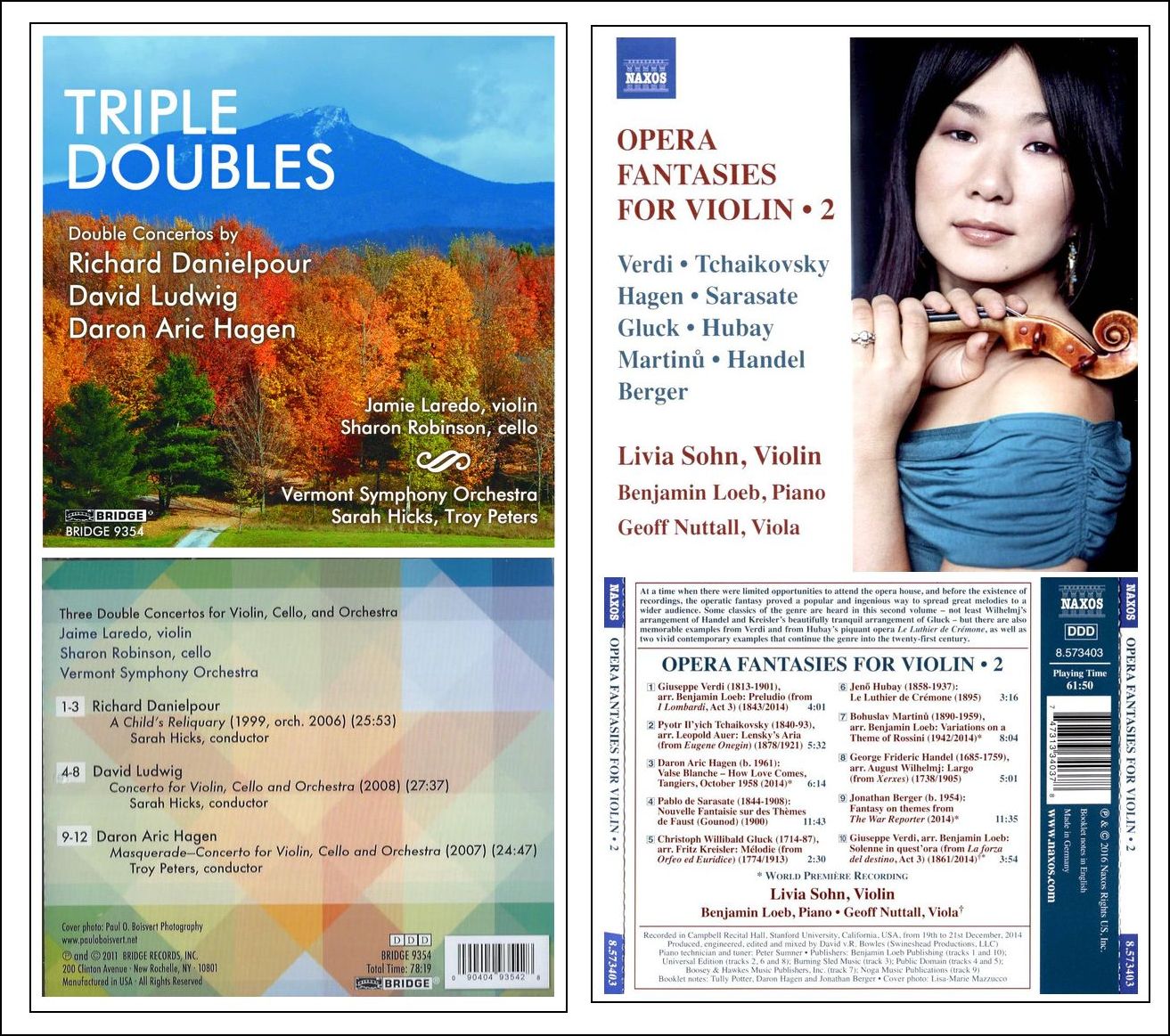
© 1997 & 2002 Bruce Duffie
These conversations were recorded in Chicago on July 11, 1997, and November 16, 2002. Portions were broadcast on WNIB in 1997 and 1999. This transcription was made in 2023, and posted on this website at that time. My thanks to British soprano Una Barry for her help in preparing this website presentation.
To see a full list (with links) of interviews which have been transcribed and posted on this website, click here. To read my thoughts on editing these interviews for print, as well as a few other interesting observations, click here.
Award - winning broadcaster Bruce Duffie was with WNIB, Classical 97 in Chicago from 1975 until its final moment as a classical station in February of 2001. His interviews have also appeared in various magazines and journals since 1980, and he now continues his broadcast series on WNUR-FM, as well as on Contemporary Classical Internet Radio.
You are invited to visit his website for more information about his work, including selected transcripts of other interviews, plus a full list of his guests. He would also like to call your attention to the photos and information about his grandfather, who was a pioneer in the automotive field more than a century ago. You may also send him E-Mail with comments, questions and suggestions.